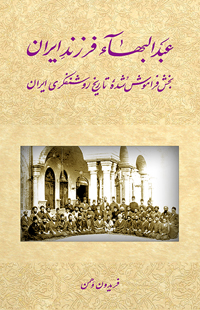This book aims to illustrate the living relationship between the history of the Baha'i Faith and the enduring historical narrative of Iran. It underscores the significant influence of this religion on Iran's intellectual landscape, spanning the last 180 years, with a particular focus on its pivotal role during the Constitutional Revolution of 1905. The book also looks at how the Baha'i Faith has endured hostility from its very inception, in its birthplace, Iran, and its modernizing influence has been expunged from historical accounts.
Throughout his leadership of the Baha'i community, for thirty years, spanning from 1892 to 1921, Abdul-Baha played a pivotal role in introducing thousands of Iranians to the teachings of his father, Baha’ullah. Despite his involuntary exile in the Ottoman Empire, he tirelessly conveyed these teachings through numerous letters sent to Iran, and encouraged fellow Baha'is to share these teachings with their compatriots. As a result, well before the Constitutional Revolution, Baha'i teachings began to permeate Iranian society, reaching even the most remote and isolated villages. These teachings eventually reached beyond Iran's borders, spreading to Central Asia, the Caucasus, Europe, and America during Abdul-Baha's lifetime.
Abdul-Baha's words and writings commemorated the human spirit and the unity of mankind. His teachings encompassed a range of important principles, such as gender equality, compulsory education, especially for girls, the fundamental values of freedom of belief and conscience, the significance of harmonizing religion with science and reason, the promotion of racial equality, advocacy for democracy and parliamentary systems, the separation of religion from politics and government, the pursuit of universal peace, disarmament, and similar core ideals.
This book serves as a valuable resource for anyone interested in the history and destiny of Iran, and understanding how the Iranian people, who initiated the Constitutional Revolution a century ago, ended up with the Islamic Republic today. Written in Persian.




